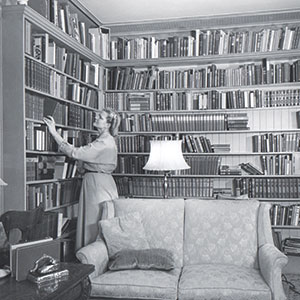

This time, the mad dervish whirl of synchronicity emerged thanks to O’Flaherty’s Pub, Crema Coffee and India.
Several months ago, I came across a tattered paperback copy of Home to India by Santha Rama Rau at Recycle Bookstore. Published just after World War II, the book chronicled Rau’s return to Bombay in 1939 after growing up in London. Even though the premise resonated with me on a deep level, I didn’t buy the book because I figured it would still be there whenever I returned.
When I did go back to find it, the book was gone.
About a month later, at O’Flaherty’s Irish Pub in San Pedro Square, a friend gave me an old hardback copy of the same book without even knowing I was already looking for it. She gave it to me along with other items she’d been clearing out from her dad’s collection.
The next day I began to look through my newly gifted copy of Home to India while sitting at Crema Coffee on The Alameda. In the book I discovered a faded bookmark still crammed into the pages from decades earlier, plus a nameplate inside the front cover, both from the book’s former owner, the dad in question, LeRoy Brant. As it turned out, he lived right around the corner from where I was sitting. I couldn’t have made this up if I’d tried.
Brant was a towering figure in San Jose classical music circles for much of the 20th century. He was also a book collector, a world traveler, a 33rd Degree Freemason and a true Renaissance man until he died in 1969.
I hazily remembered coming across his name, perhaps in historical articles over the years, concert programs, old sheet music, stories from music teachers or local music academia. And yet, somehow I didn’t realize the friend in question, Vernie Mast, was his daughter.
As a slave to the muses of synchronicity, I knew Brant’s life needed some ink in the modern era; that’s why these things were happening to me. Even if I couldn’t make it back to India anytime soon, well, at least I could tell LeRoy Brant’s story.
The laundry list went a little something like this: Originally born in Nebraska in 1890, Brant came to San Jose in 1917 and founded the San Jose of Institute of Music, the first privately owned, non-endowed music school in Santa Clara County. He ran the school until his death 52 years later. Brant also founded the San Jose Municipal Chorus in 1924, conducting the group for 40 years.
He designed the organ for the Scottish Rite Temple and was the organist for San Jose Scottish Rite Bodies for 35 years. Brant supervised the installation of the organ at Trinity Episcopal Church, where he was the organist and choirmaster for 24 years. He was acquainted with many famous conductors and performing artists around the world, counting among his personal friends the composers Jean Sibelius and Ernest Bloch.
Brant’s final wife, Ruth (see photo), was 28 years younger and accompanied him on his travels around the world. In addition to music lessons, they were known for slideshow presentations of their travels.
Ruth taught upwards of 700 piano students from their Martin Avenue house near Crema Coffee, which doubled as the headquarters for the Institute of Music. This was not the Institute’s first location.
Previous incarnations of the institute were located in a spot at the corner of Second and San Salvador streets, 454 S. Fifth St., and a longtime outpost at 97 S. Sixth St., across from SJSUa house that still looks pretty much the same today as it did 80 years ago.
Brant bought the Martin Avenue house for around $6,000 in 1941. The Martin Avenue house also held the Brants’ extensive library and book collection (see photo), where my copy of Home to India originally sat. Such is the joy of second-hand books.
Some people research the history of a classic car they bought. I do so with books. I should have been a detective.
In any case, these revelations filled me with gratitude. Material history merged with ancestral history, which also merged with the geographical histories of San Jose and India via the mad dervish whirl of synchronicity. I was already home.



